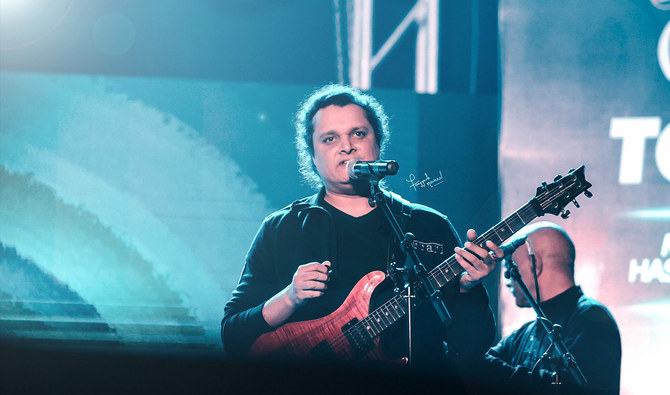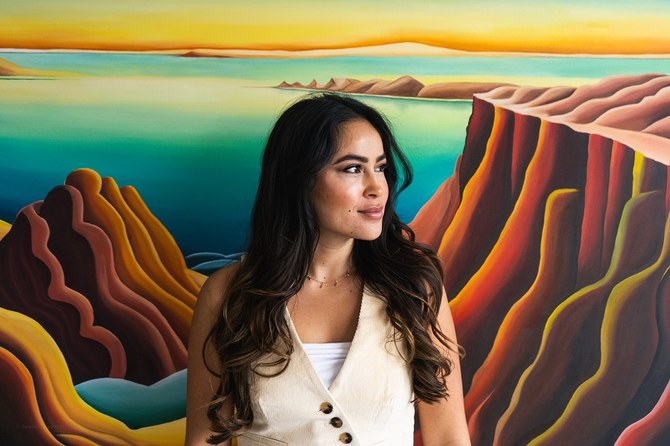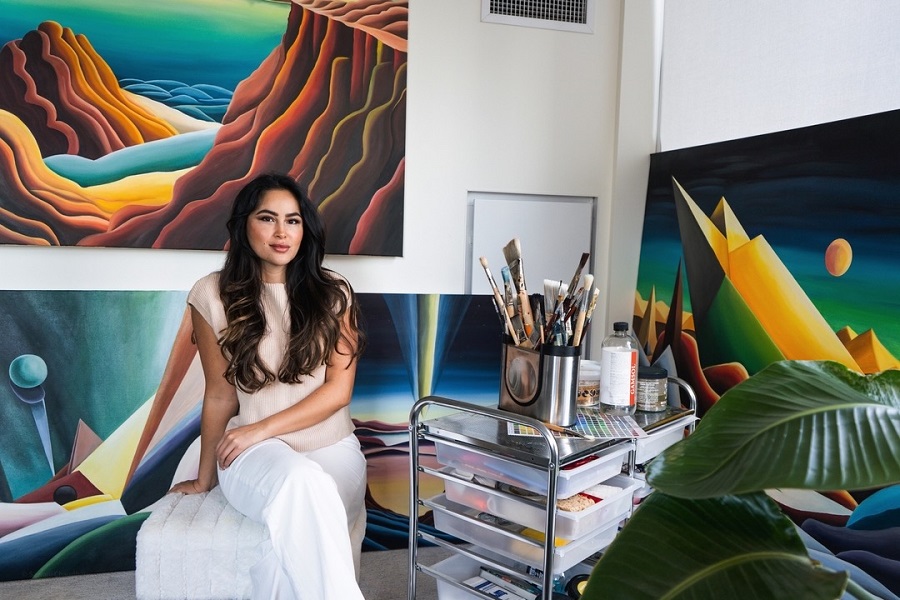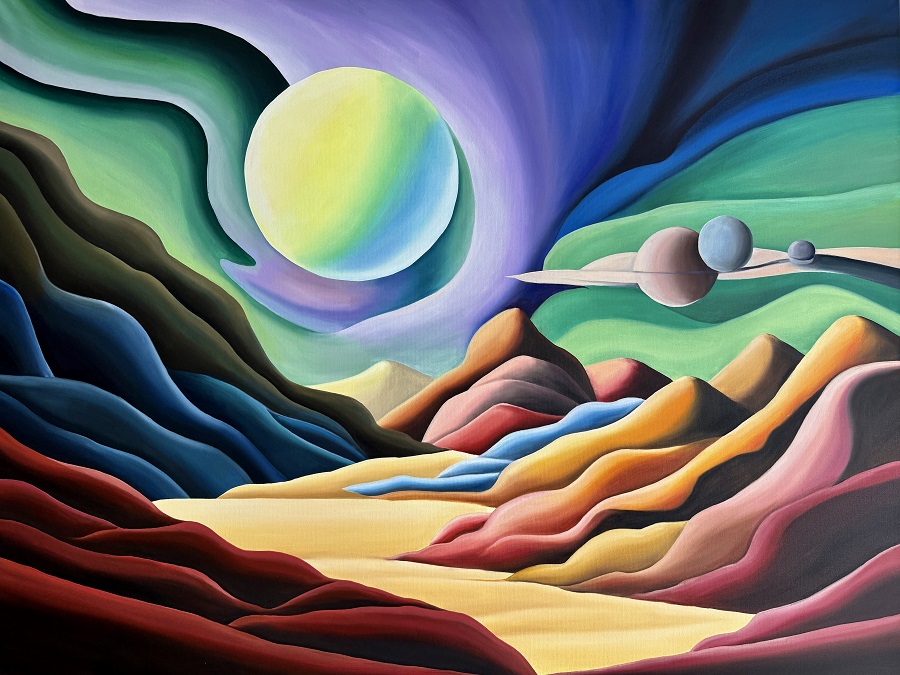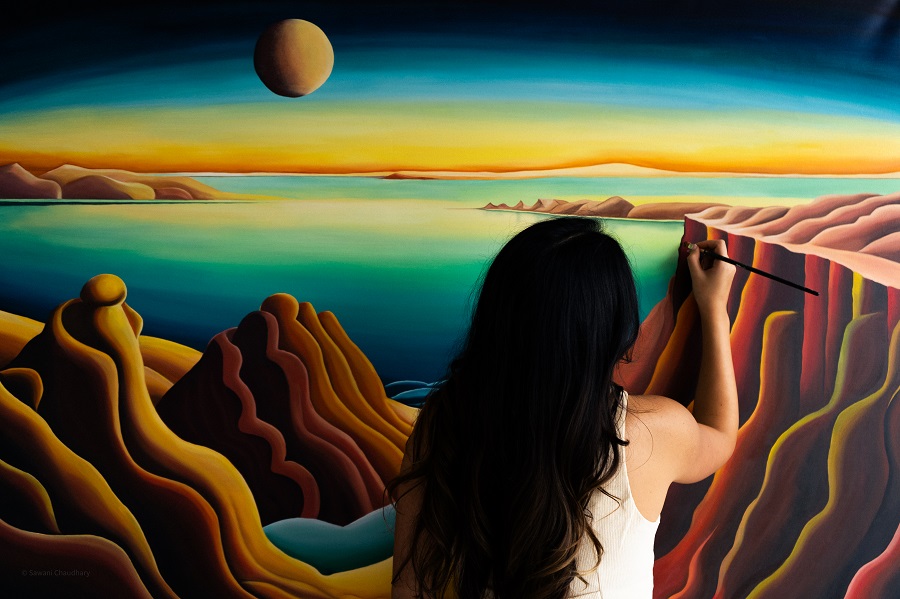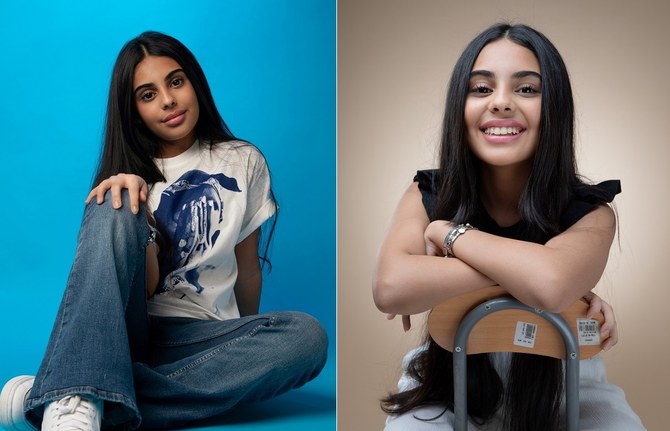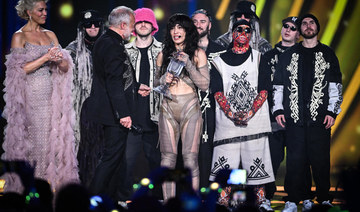LAHORE: A musical project in Lahore spearheaded by legendary Pakistani guitarist Mekaal Hasan is true to its title, Rivayat, which means tradition in Urdu, giving a platform to hereditary musicians whose knowledge has been passed down through the generations but who have recently been pushed to the margins by an industry dominated by corporate studios.
Adding foreign musicians to the mix of traditional folk and classical musical and lyrical styles, Hasan launched Rivayat in 2020 at the peak of the coronavirus pandemic to give vanishing musical forms a fresh, more contemporary touch, and help it reach larger audiences.
Rivayat has its roots in an eclectic mixture of genres Hasan’s eponymous band, the Mekaal Hasan Band, was for decades known for - rock, soul, jazz and sufi music - as well as the peculiar circumstances of the last few years.
“When the pandemic began, the first thing that came to my mind was that I have a lot of friends who do session [music], who work with playback singers, who perform live. I immediately thought of how they were losing their livelihood,” Hasan told Arab News in an interview at his studio. “They don't have any state support.”
And the musicians were no strangers to Hasan but all from hereditary musical families that he had met and worked with over his three-decade long career.
“I said to them, ‘We have an amazing studio, I know many, many amazing musicians all around the world, if you guys can…bring your songs [to me], I will record them, and I will find you collaborators who can work on those songs’,” Hasan said.
The collaborators are all international musicians who Hasan hoped would add a touch of the fusion he’s been creating throughout his career.
He wanted to make something that had “both local and international appeal,” Hasan said, explaining why he hired French guitarist Gwen Lafitte, London-based folk-jazz musician Shez Raja, and Anton Davidyants, a bass guitar player from Russia, who have worked together on the project remotely, each adding a new layer of music and depth to a song.
“That's how the [Rivayat] project came about. We commenced recording in July of 2020” Hasan said. “We’ve got folk music from different regions. We’ve got Ghazal and Thumri which is a more romanticized art form. We’ve got Qawali, we’ve got Naat, Marsiye, we’ve tried to capture the entire cultural landscape of Pakistani music,” the guitarist and producer said, naming a variety of musical and poetic forms.
To date, 156 songs have been recorded as part of Rivayat, with 22 vocalists and a total of 100 musicians.
“THE IDEA OF RIVAYAT”
“The pandemic has been challenging, recording remotely. And this [Rivayat] was also challenging because it was a new variety of sounds,” Lafitte, who Hasan knows from their days together at the Berklee College of Music in the 90s, told Arab News in an phone interview.
“But I got completely lost in them, in this idea of a folk-contemporary medley, in the idea of Rivayat.”
In future instalments, Hasan hopes to add musicians from Poland, Canada, the US and even India to the project.
“Rivayat is going to be coming every Friday, six o’clock, for the next 2-3 years,” Hasan said, explaining that a new song was released each week on Friday.
But there is a problem: of monetization. A single track costs about $1,000, especially with the scope of Rivayat’s ambitions and the number of artists that need to be paid.
Hasan is adamant that he doesn’t want corporate backing, or to go the route of Coke Studio, a wildly popular Pakistani television programme and international music franchise which features studio-recorded music performances by established and emerging artists and is sponsored by the Coca-Cola Company. It is the longest-running annual television music show in Pakistan, on air since 2008.
“When you switch to a [corporate] template, you have to edit a lot. We have no editing in Rivayat.” Hasan said, adding that Rivayat songs were as long as 12 minutes, including instrumentals and improvisations.
“What I’m thinking of doing is having a Patreon [membership platform for content creators] page where we can say to people, 'Look this is what we’re making, and this is [the] money we need to make it',” Hasan explained.
“FAMILY TRADITION”
The latest song in the series, which came out last Friday, is by clarinet player Ustad Jaffar Hussain Randhawa, an instrumental, improvised Thumri on a western instrument.
Randhawa, who learned his craft from his father and paternal uncle and runs the Punjab Brass Band, founded by his grandfather in the early 20th century, is one of the few people left in Pakistan who play the clarinet.
“The British gave us these instruments, true, but we’ve made them our own, playing more traditional subcontinental music," Randhawa said, describing the clarinet, tuba, trumpet, drums, and other western instruments that feature in the Punjab Brass Band.
Shahzad Ali Khan Qawal, from the Shahdara area of Lahore, also learned his craft from his father, Muhammad Boota Khan Qawal, and was about 17 when he started performing:
“I took up Qawali because of my father. Now my son is working with me, my nephew as well. It’s a family tradition we are looking to uphold.”
Performing Qawalis for almost 35 years, Qawal was introduced to Hasan through a musician friend.
“When the coronavirus started, I got a message from Mekaal. I was one of the first artists to be featured on Rivayat. I’ve done six songs for the series by now,” Khan told Arab News on Sunday, recalling 2020, a year he got no live performances or events.
Others on the Rivayat project include Fiza and Hasnain Haider, siblings who specialize in Ghazals and are the grandchildren of Iqbal Begum, a famous Ghazal singer from Faisalabad. Their mother, Samar Iqbal, was a singer too.
The siblings say they spend a lot of their time in ‘Riyaz,’ or honing their vocal cords, and practiced singing every day.
“Singing these days is not the same as it used to be. Anybody can use an auto tuner and sound good. But we have done a lot of riyazat [vocalpractice], our voices are real,” Hasnain told Arab News. “Fiza and I have done two duets for Rivayat and really enjoyed the experience.”
“We all sing live in one session, no editing, no tuner, no digital alteration," Hasnain added. "This is the biggest thing Rivayat is bringing back.”



